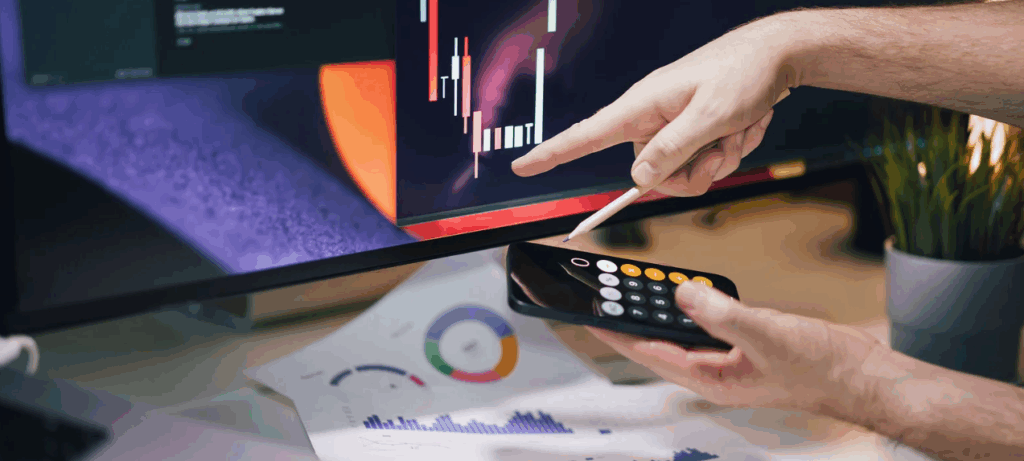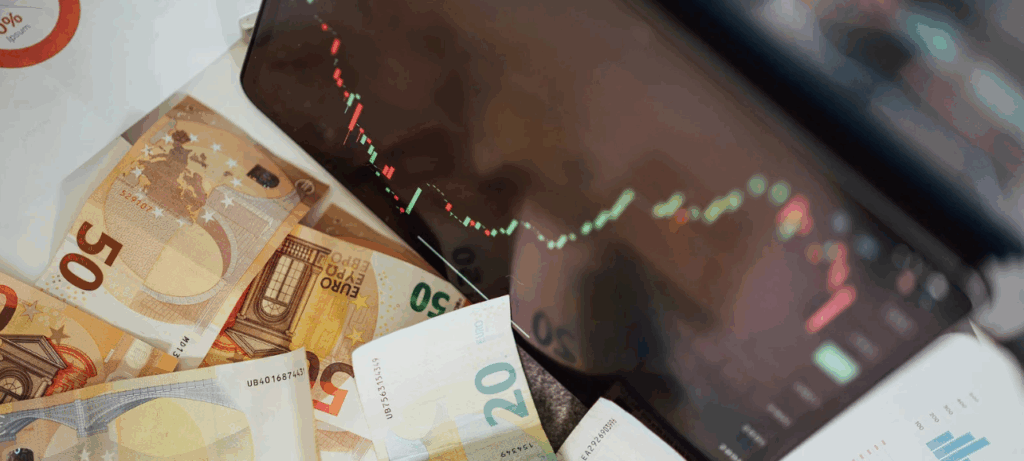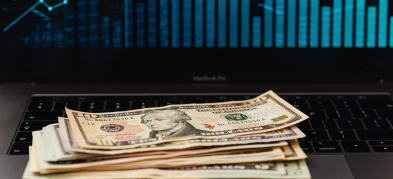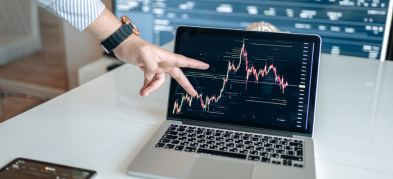
Ultima Markets App
Trade Anytime, Anywhere
Important Information
This website is managed by Ultima Markets’ international entities, and it’s important to emphasise that they are not subject to regulation by the FCA in the UK. Therefore, you must understand that you will not have the FCA’s protection when investing through this website – for example:
- You will not be guaranteed Negative Balance Protection
- You will not be protected by FCA’s leverage restrictions
- You will not have the right to settle disputes via the Financial Ombudsman Service (FOS)
- You will not be protected by Financial Services Compensation Scheme (FSCS)
- Any monies deposited will not be afforded the protection required under the FCA Client Assets Sourcebook. The level of protection for your funds will be determined by the regulations of the relevant local regulator.
Note: Ultima Markets is currently developing a dedicated website for UK clients and expects to onboard UK clients under FCA regulations in 2026.
If you would like to proceed and visit this website, you acknowledge and confirm the following:
- 1.The website is owned by Ultima Markets’ international entities and not by Ultima Markets UK Ltd, which is regulated by the FCA.
- 2.Ultima Markets Limited, or any of the Ultima Markets international entities, are neither based in the UK nor licensed by the FCA.
- 3.You are accessing the website at your own initiative and have not been solicited by Ultima Markets Limited in any way.
- 4.Investing through this website does not grant you the protections provided by the FCA.
- 5.Should you choose to invest through this website or with any of the international Ultima Markets entities, you will be subject to the rules and regulations of the relevant international regulatory authorities, not the FCA.
Ultima Markets wants to make it clear that we are duly licensed and authorised to offer the services and financial derivative products listed on our website. Individuals accessing this website and registering a trading account do so entirely of their own volition and without prior solicitation.
By confirming your decision to proceed with entering the website, you hereby affirm that this decision was solely initiated by you, and no solicitation has been made by any Ultima Markets entity.
I confirm my intention to proceed and enter this website Please direct me to the website operated by Ultima Markets , regulated by the FCA in the United KingdomMaking money on forex comes down to one core idea, you profit from changes in exchange rates by buying and selling currency pairs. When a currency you buy increases in value relative to the one you sell, the difference becomes your profit.
Today’s forex market is more accessible than ever, supported by advanced trading platforms, tighter spreads, and faster execution, all of which help active investors take advantage of global currency movements.
Below, you’ll learn how forex traders actually make money, what drives profit and risk, and practical strategies to help you trade smarter.

How Making Money on Forex Works
Buying and Selling Currency Pairs
In forex, currencies are quoted in pairs like EUR/USD or USD/JPY.
You make money when:
- You buy a pair expecting the base currency (first) to rise.
- You sell a pair expecting the base currency to fall.
For example, if EUR/USD rises from 1.0800 to 1.0900, and you bought EUR/USD, you profit from the +100-pip move. Unlike stocks, forex prices move in decimals called pips, and each pip has a monetary value depending on your position size.
Taking Advantage of Market Volatility
Forex markets move because of economic news, central bank rate decisions, inflation data, employment figures, geopolitical shifts.
Active traders can benefit from these short-term fluctuations through strategies such as trend trading, breakout trading, or mean reversion.
Using Leverage (Responsibly)
Leverage lets you control a larger position with a smaller deposit. For example, with 1:30 leverage, a $1,000 margin can control a $30,000 position. Leverage increases profit potential but also magnifies losses, making risk management essential.
Earning From Swaps (Rollover Interest)
When you hold a trade overnight, you may gain or pay a small interest fee depending on the interest rate difference between the two currencies.
For active investors trading major central bank pairs, this can become an additional income stream if used strategically (known as a carry trade).
What Helps You Make Money on Forex?
Understanding Trends
The strongest forex opportunities often come from long-standing trends driven by macroeconomic forces. Traders who follow these trends, not fight them, typically make more consistent profits.
Choosing a Regulated Broker
Execution speed, spreads, liquidity access, and fund security all affect profitability. A regulated broker like Ultima Markets with deep liquidity and fair pricing helps ensure your trades fill accurately with minimal slippage.
Using a Clear Strategy
Successful traders don’t rely on guessing. They use structured systems such as trend following, breakout strategies, scalping, swing trading, algorithmic or rule-based trading, the method matters less than consistency.
Managing Risk Like a Professional
No trader makes money on every trade. But profitable traders use stop-loss orders, limit their leverage, avoid overtrading, keep risk per trade small (1–2%). This protects capital and smooths performance over time.
Example: Simple, Realistic Forex Profit Scenario
Let’s say you analyse USD/JPY and believe the yen will weaken.
- You buy USD/JPY at 150.00
- Your target is 151.00
- You trade 1 lot, where each pip ≈ $10
If price reaches 151.00, Gain = 100 pips × $10 = $1,000 profit
If the market moves against you:
- A stop-loss at 149.50 caps your loss at 50 pips
- Loss = 50 pips × $10 = $500
This is how risk-reward ratios support long-term profitability.
Is Forex Currency Trading Easy?
Forex currency trading is easy to understand but not easy to master. The concept is simple, you buy and sell currency pairs to profit from price movements. However, consistent success is difficult because markets react quickly to global events, and traders must manage risk, discipline, and leverage carefully.
Why it’s simple:
- You buy one currency
- You sell another
- You profit from the difference
Why it’s difficult:
- Markets react instantly to global events
- Emotions affect decision-making
- Lack of risk management leads to account blowouts
- Overuse of leverage amplifies mistakes
Benefits for Active Investors
Forex has several advantages for active investors compared to other markets:
- 24-Hour Market: Trade major sessions across Asia, Europe, and the US without waiting for a market to open.
- High Liquidity: Major pairs like EUR/USD offer tight spreads and deep liquidity, ideal for active strategies.
- Low Entry Cost: You don’t need large capital to get started thanks to fractional position sizes and controlled leverage.
- Opportunities in Rising and Falling Markets: You can profit in both directions, an advantage not all investments offer.
- Wide Variety of Trading Styles: Day trading, swing trading, news trading, algorithmic trading, all are accessible in forex.

Tips to Make Money on Forex as a Beginner
These are practical, updated guidelines used by real traders today.
Start with One or Two Major Pairs
EUR/USD, USD/JPY, and GBP/USD are easier to analyse due to consistent liquidity.
Don’t Chase High Leverage
Use leverage conservatively, many professionals trade at much lower levels than beginners expect.
Follow Economic Calendars
Data releases like CPI, NFP, and central bank decisions move the market instantly.
Master One Strategy Before Expanding
Your goal is consistency, not complexity.
Keep a Trading Journal
Track every decision, entry, exit, and lesson. This builds real trading intelligence.
Conclusion
You make money on forex by buying and selling currency pairs, identifying strong market trends, and managing risk with discipline. Forex trading isn’t effortless, but the right tools, strategy, and discipline make progress possible. With a regulated broker like Ultima Markets offering transparent pricing, fast execution, and educational support, traders can navigate the forex market with more confidence and make smarter decisions as they build their skills.
Disclaimer: This content is provided for informational purposes only and does not constitute, and should not be construed as, financial, investment, or other professional advice. No statement or opinion contained here in should be considered a recommendation by Ultima Markets or the author regarding any specific investment product, strategy, or transaction. Readers are advised not to rely solely on this material when making investment decisions and should seek independent advice where appropriate.












